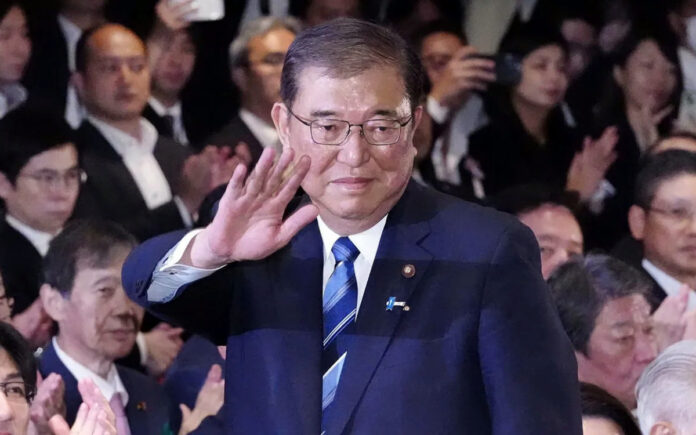Tokyo: Japan’s incoming Prime Minister, Shigeru Ishiba, emphasized the necessity of maintaining an accommodative monetary policy on Sunday, suggesting that low borrowing costs are essential to support the country’s fragile economic recovery.
It remains uncertain if Ishiba, previously a vocal critic of the Bank of Japan’s (BOJ) aggressive monetary easing, is adopting a more dovish stance with these remarks. “It’s something the Bank of Japan, which is mandated to achieve price stability, will decide while working closely with the government,” Ishiba stated during an interview with public broadcaster NHK when asked about potential interest rate increases by the central bank. He added, “From the government’s standpoint, monetary policy must remain accommodative as a trend given current economic conditions.”
On fiscal policy, Ishiba expressed his intention to quickly compile a package of measures aimed at alleviating the economic impact of rising living costs, particularly focusing on support for low-income households.
A former defense minister, Ishiba is set to become prime minister on Tuesday after winning the presidency of the ruling Liberal Democratic Party (LDP) on Friday. Following his victory, he indicated that while monetary policy would largely remain loose, he would not resist further increases in the currently near-zero interest rates.
Also Read | China Claims U.S. Missile Deployment in Philippines Undermines Regional Peace
The BOJ had ended negative interest rates in March and raised short-term borrowing costs to 0.25% in July, marking a significant shift from a decade-long radical stimulus program. BOJ Governor Kazuo Ueda has indicated a willingness to raise rates further if Japan progresses toward consistently achieving the bank’s 2% inflation target, which the board anticipates.
Also Read | Russia Backs India’s UNSC Bid, Joining Global Support for Permanent Membership
In an August interview with Reuters, Ishiba remarked that the BOJ was on the “right policy track” by ending negative rates and supported further normalization of monetary policy, citing potential boosts to industrial competitiveness. However, he cautioned this month that Japan must prioritize a complete exit from deflation and noted weak signals in consumption.
The yen, which had fallen on Friday following news of a dovish rival entering the LDP leadership race alongside Ishiba, rebounded in response to his victory.



